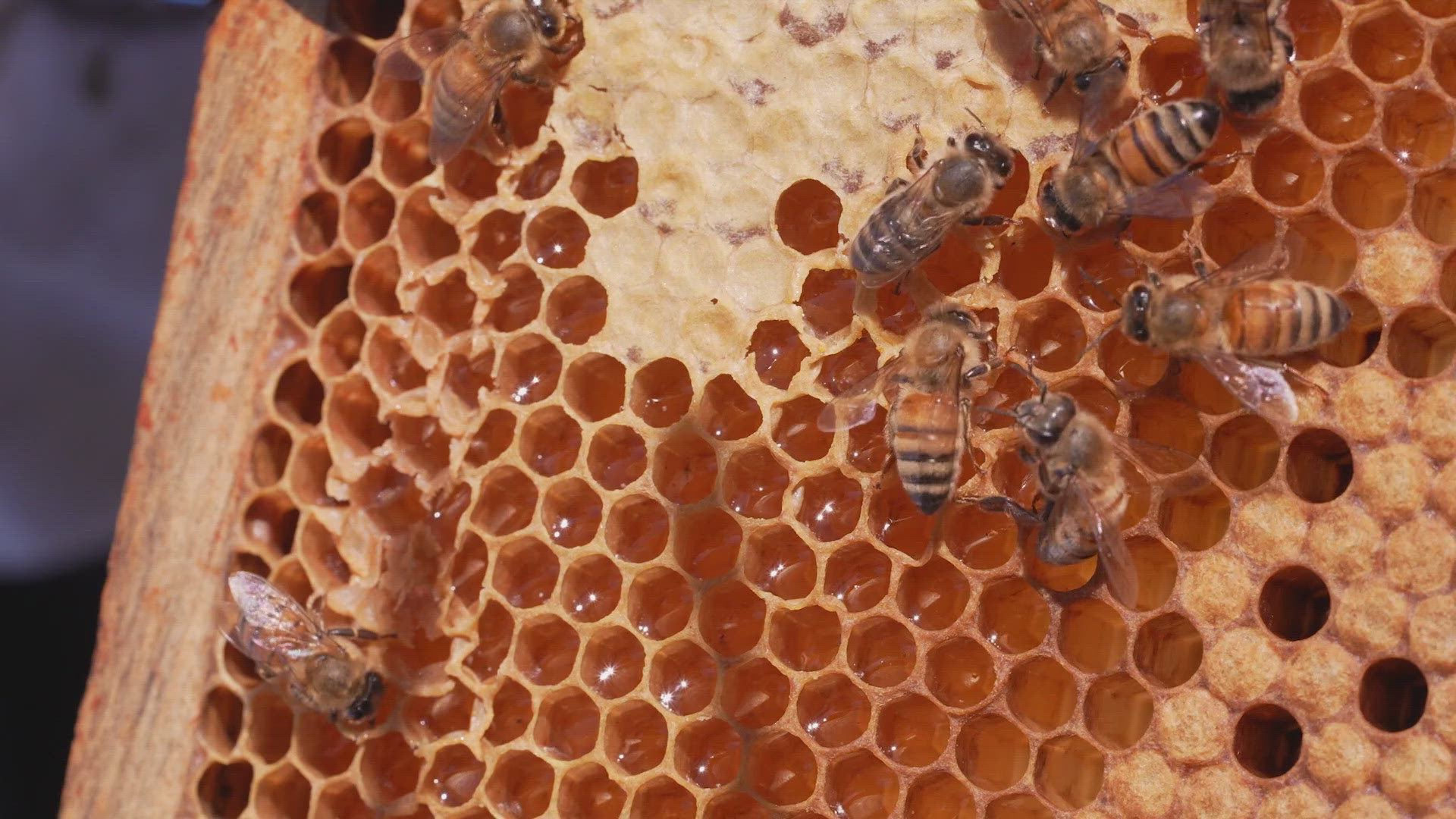SKAGIT COUNTY, Wash. — Northwest beekeepers are hoping for help to stop a top killer of honeybees. Years into research and some attempts to eradicate them, Varroa mites remain a leading challenge.
Beekeepers like Dawn Beck are hoping for more investment into research for solutions, but until then, she does what she can to keep her hives as healthy as possible — and she says the benefits outweigh the challenges.
Beck began beekeeping eight years ago. After retiring from her career as an accountant and chief financial officer, her seasons began to be marked by the needs of her honeybees.
"I just love bees, I love the sound of them in the summer and they're so fascinating," Beck said. "You can spend your whole lifetime learning about bees, they're absolutely magical."
Beck houses her hives near Boldly Grown Farms in the Skagit Valley, where they give and take from the surrounding flowers, trees and crops.
"Every third bite of food is due to a honeybee," Beck said. "We think of apples and berries and how important those are, but even things like kale and Brussels sprouts and broccoli come from seeds."
To protect the pollinators, the beekeepers must defend them from what studies name as the leading threat to their health -- a parasite mite called the Varroa destructor. It attacks and feeds on honeybees, killing them -- and it's been causing problems for years.
"If you have bees, you have mites. It's just guaranteed," Beck said. "So I keep the level at or below 1% per bee on my test, especially in the fall."
There are some techniques beekeepers use to limit their numbers, but no simple, long-term fix. For Beck, that means regular testing and constant vigilance.
"In the spring, there will be a few of them and then they bell curve up and build and build and build exponentially," Beck said. "So if you can keep them low in the spring, you can kind of flatten the curve so they don't kill your bees over winter."
She's hoping agencies will invest in research to find a better solution.
"That we will find something we can feed to the bees that's not detrimental to them, something organic," Beck said. "They're looking at things that might help, that don't hurt the bees but might stop the Varroa mites from getting to a level where the parasite overtakes the host."
In the meantime, she says, honey lovers aren't at risk.
"It doesn't affect the honey, just the bees themselves," Beck said. "It doesn't affect the product but we want our bees to be alright."
She says to help honeybees, people can support research efforts along with planting flowers and trees that will give them a variety of pollen in their diet.

